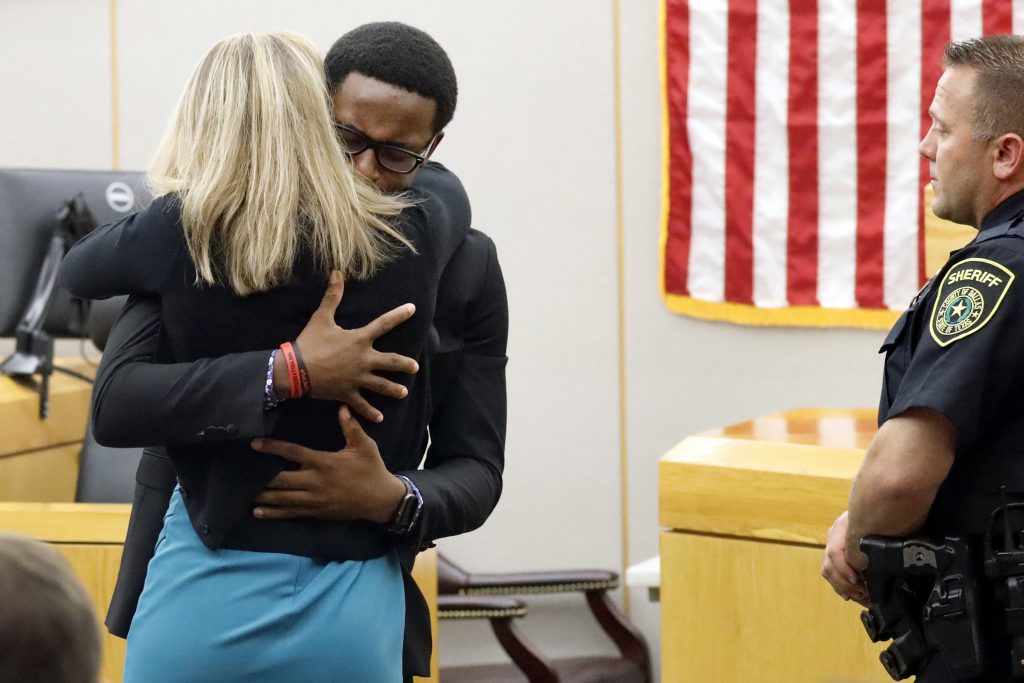
Brandt Jean’s words alone were unthinkable. In a Dallas courtroom, the 18-year-old Caribbean man told the white, since-fired police officer that he forgave her for killing his brother. He then loosened his necktie, wiped his eyes and asked the judge for permission to hug the convicted murderer.
The judge allowed it. Unknowingly to Brandt, media captured the two embracing between his witness stand and her defendant table. She wept. The world reeled.
#Forgiveness flooded social media. People tried to make sense of it. It’s still top-of-mind a week later. Such mercy is inconceivable—and yet this is exactly what Jesus Christ offers any person who sincerely places his or her faith in Him.
Consider these three takeaways from last week’s moment of forgiveness:
Forgiveness Is Powerful
Jesus says, “forgive and you will be forgiven” in Luke 6:37. “But if you do not forgive others their trespasses, neither will your Father forgive your trespasses,” He instructs in Matthew 6:15. The Bible doesn’t drill down misdeeds by type. Murder isn’t more sinful than an unkind thought. Society lends weight to these infractions, but God does not. Rather, His Son Jesus has the power to forgive a disreputable woman at the well (John 4:1-28), a wicked tax collector (Luke 19:1-10), the thief hanging on the cross next to Him (Luke 23:39-43) and you.
Forgiveness Is for Everyone
In 2 Peter 3:9, we are reminded our patient Lord doesn’t want anybody to perish, but wishes everyone would confess their sins and come to faith in Him through His Son Jesus Christ. Anybody means everybody, regardless of ethnicity, race, gender, profession and so on. Part of what made the Dallas courtroom act of forgiveness so captivating was the raw grace extended across racial lines. Jesus constantly busted up social constructs to reach people with the Good News that they could be forgiven if they would sincerely repent, meaning turn away from their sins (1 John 1:9). After forgiving his brother’s murderer, Brandt tearfully pleaded with her to “give your life to Christ.”
Forgiveness Is Touching
More than one person wiped away tears on October 2 in that courtroom, as did many more from afar watching Brandt verbally forgive the guilty woman. But Brandt demonstrated his fellowship in the divine nature (2 Peter 1:4) when he compassionately extended healing through touch. Society gasped and social media exploded when they embraced—perhaps a modern version of the response Jesus received when He healed a leper through touch (Mark 1, Matthew 8, Luke 5:12-16). Lepers were social outcasts required to live on the fringes and yell “unclean” in the presence of others. Jewish law forbade anyone to touch them. Conceivably, Jesus could have healed with His words. Instead, He did something taboo. Brandt did, too.
In the days following Brandt’s courageous statement, critics have surfaced. Brandt didn’t back down. “Not knowing the attention it would get, I said what I had to say,” he told one media outlet. “I meant what I said, and I thank God I got the courage to say it.”
With God all things are possible, even peace. Learn more about His love today.


